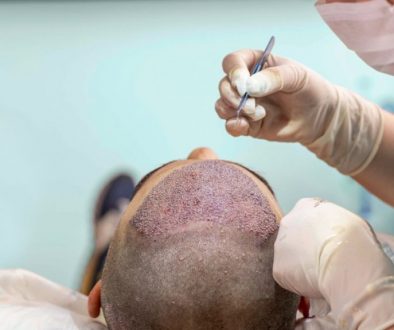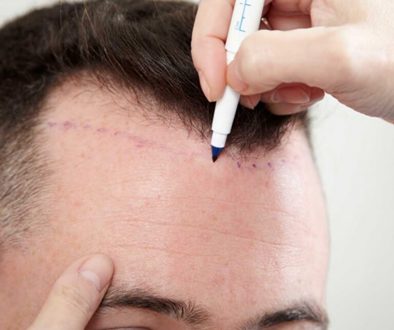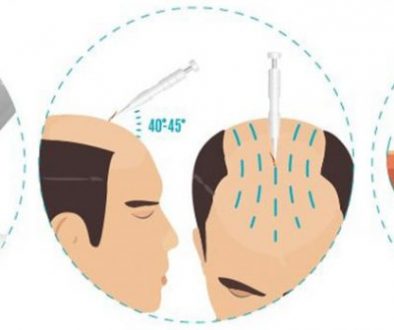Can Antidepressants Cause Hair Loss?
This question comes from a member of our hair loss social community and discussion forums:
I’ve taken an antidepressant medication without side effects for years. During this time, I also experienced some hair loss. I always attributed the thinning hair to “male pattern hair loss”, but I recently read about antidepressant drugs causing alopecia, and now I’m wondering: is an antidepressant causing my hair loss? Is it true that antidepressants can even cause hair loss?
 In a perfect world, pharmaceutical medications would treat diseases effectively with no adverse side effects. We, unfortunately, do not live in this world. Medications are not perfect. While many are considered “modern miracles,” and cure people of ailments responsible for significant morbidity and mortality in the past, these powerful “wonder drugs” often come with a set of equally powerful – but much less wonderful – side effects. Unfortunately, hair loss is a side effect of several trusted and proven antidepressant medications.
In a perfect world, pharmaceutical medications would treat diseases effectively with no adverse side effects. We, unfortunately, do not live in this world. Medications are not perfect. While many are considered “modern miracles,” and cure people of ailments responsible for significant morbidity and mortality in the past, these powerful “wonder drugs” often come with a set of equally powerful – but much less wonderful – side effects. Unfortunately, hair loss is a side effect of several trusted and proven antidepressant medications.
However, all is not lost …
Of the numerous types of antidepressants available today, two classes are (most commonly) associated with hair loss: tricyclic antidepressants (TCA) and selective serotonin reuptake inhibitors (SSRI). Both classes of drugs officially list “hair loss” as a potential side effect; however, both also report hair loss occurring only in a very small number of medication users. For example, several types of SSRIs list hair loss as a “rare” side effect that occurs in approximately 1-2% of users. Even more encouraging, many see a reversal of the hair loss after stopping the medication. This is, however, not guaranteed – as many drugs “unmask” dormant permanent types of alopecia like androgenic alopecia (“male pattern baldness”). In these cases, the hair loss is not reversible. In these instances, however, it’s important to understand that the drug only revealed or accelerated an underlying condition; it did not actually cause a primary hair loss.
So, what should individuals suffering from – what they believe is – antidepressant related hair loss do? First, and foremost, speak with the physician who prescribed the medication. Depression is a very serious medical issue, and it’s not easy to treat. Mental health professionals understand the disease process and the psychological strain of drug-related side effects, and can likely help. The provider may recommend another medication or different type of therapy; he/she may also explain that the instances of true antidepressant-related hair loss are low, and a genetic hair loss pattern – which may be treatable with other medications – is more likely. However, having this conversation with the prescribing provider is of utmost importance, and must be done in any individual experiencing stressful side effects – like alopecia – while on an antidepressant medication.
____________
Blake Bloxham – formerly “Future_HT_Doc”
Editorial Assistant and Forum Co-Moderator for the Hair Transplant Network, the Hair Loss Learning
Center, the Hair Loss Q&A Blog, and the Hair Restoration Forum
Follow our community on Twitter
Watch hair transplant videos on YouTube
Technorati Tags: hair loss, antidepressant, hair loss, male pattern hair loss, tricyclic antidepressants, TCA, selective serotonin reuptake inhibitors, SSRI, androgenic alopecia, male pattern baldness, antidepressant related hair loss




November 15, 2016 @ 7:04 pm
In the response to a question, Blake Bloxham wrote:
“For example, several types of SSRIs list hair loss as a “rare” side effect that occurs in approximately 1-2% of users. Even more encouraging, many see a reversal of the hair loss after stopping the medication. This is, however, not guaranteed – as many drugs “unmask” dormant permanent types of alopecia like androgenic alopecia (“male pattern baldness”). In these cases, the hair loss is not reversible. In these instances, however, it’s important to understand that the drug only revealed or accelerated an underlying condition; it did not actually cause a primary hair loss.”
What scientific evidence out there supports his conclusion? How can antidepressant-induced hair loss (TE) unmask androgenic alopecia? It doesn’t make sense to me.